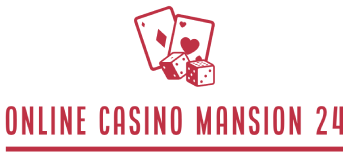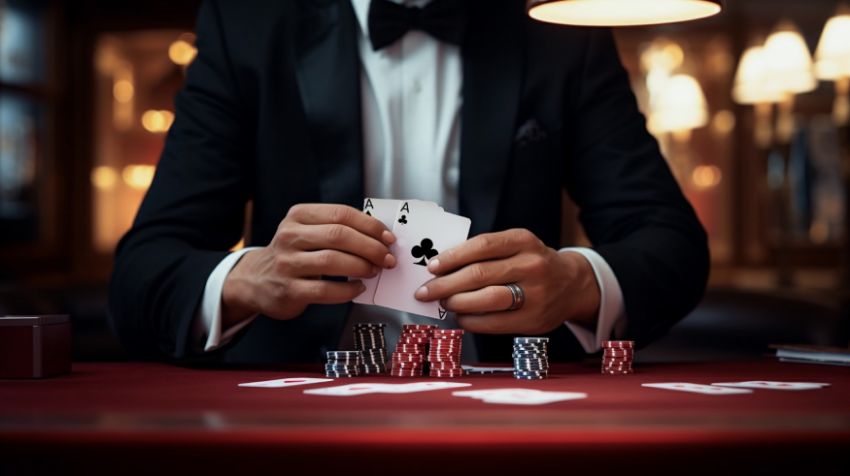When you sit down to play blackjack, the dealer plays a crucial role in the overall dynamics of the game. Their responsibilities extend beyond merely shuffling and dealing cards; they are essential in maintaining the game’s integrity. The dealer ensures that all actions adhere to the established rules and that bets are managed appropriately. This oversight is vital for preserving the fairness of the game, as it helps prevent potential disputes and ensures that all players have an equal opportunity to participate.
The dealer’s actions significantly influence player strategy and decision-making at the table. For instance, their method of dealing cards and managing the game can affect the pace and flow, which, in turn, may impact how players approach their bets and gameplay. Additionally, understanding the dealer’s upcard and overall strategy can inform players’ decisions, making it important to consider their role carefully.
In summary, the dealer is an integral part of the blackjack experience, serving as a facilitator who upholds the rules and fairness of the game. Their influence extends to various aspects of gameplay, making it essential for players to recognize and adapt to their role in the game.
Dealer’s Responsibilities
In a game of blackjack, the dealer plays a crucial role in ensuring that the game operates smoothly and fairly. Understanding the dealer’s responsibilities helps to appreciate their function within the game. The following outlines the key duties of a blackjack dealer:
-
Managing Bets: The dealer is responsible for overseeing the betting process, ensuring that all players place their bets correctly before the cards are dealt. This includes verifying the amounts and the proper placement of chips.
-
Enforcing Rules: The dealer must ensure that all players adhere to the established rules of blackjack. This includes guiding players on actions such as hitting, standing, splitting, and doubling down, and ensuring that these actions are executed in accordance with the game’s guidelines.
-
Paying Winnings: After the conclusion of each round, the dealer must accurately calculate the outcomes of the hands and distribute winnings to players accordingly. This requires a clear understanding of the game’s payout structure.
-
Handling Chips: The dealer is tasked with managing the chip inventory at the table. This includes organizing chips for easy access, maintaining the integrity of the chip bank, and ensuring that all transactions are recorded accurately.
-
Monitoring Players: The dealer must remain vigilant for any signs of cheating or irregular behavior among players. This responsibility is important for maintaining the integrity of the game and ensuring that all participants are playing fairly.
These responsibilities are fundamental to the dealer’s role and contribute to the overall experience of the game for all participants.
Card Shuffling and Dealing
A fundamental aspect of the dealer’s responsibilities in card games, particularly blackjack, is the process of shuffling and dealing cards. This procedure is designed to ensure fairness and randomness in the game. The following outlines the key steps involved:
-
Shuffling: Dealers typically employ a combination of shuffling techniques, including riffle, strip, and overhand shuffles. These methods are utilized to eliminate any discernible patterns or predictability, thereby reinforcing the randomness of the card order.
-
Cutting: Following the shuffling process, the dealer presents the deck to a player for cutting. This step serves as an additional measure of fairness, as it allows a player to alter the arrangement of the cards before dealing.
-
Dealing: The dealer proceeds to distribute the cards, giving two cards to each player as well as to themselves. It’s standard practice for one of the dealer’s cards to be placed face-down, maintaining a level of secrecy regarding the dealer’s hand.
These procedures are critical for ensuring that the game operates fairly and without bias, which is essential for maintaining the integrity of the game.
The meticulous nature of shuffling and dealing is necessary for a reliable blackjack experience, as it upholds the principles of chance and fairness inherent in the game.
Managing Bets and Payouts
Once the cards are shuffled and dealt, the dealer’s responsibility is to manage bets and payouts effectively. It’s essential to ensure that all bets are accurately placed prior to the commencement of the game. The dealer must carefully monitor each player’s wagers, confirming compliance with the established minimum and maximum limits of the table.
Key procedures include:
-
Collecting Losing Bets: After the hands have been revealed, the dealer should promptly gather chips from players who’ve lost their bets.
-
Payouts: It’s critical to calculate and distribute winnings accurately. Standard payouts are typically 1:1 for regular wins and 3:2 for blackjacks, which should be consistently adhered to.
-
Insurance Bets: These should be managed separately. If the dealer has a blackjack, insurance bets are paid at a rate of 2:1.
-
Pushes: In the event of a tie, the dealer must return the original bet to the players involved.
Adhering to these procedures ensures a structured and fair game environment for all participants.
Enforcing Game Rules
To maintain the integrity of the game, the dealer enforces the rules of blackjack with consistency and precision. The following procedures are implemented:
-
Verification of Bets: The dealer ensures that all bets are placed prior to the dealing of cards, as late bets aren’t accepted.
-
Card Distribution Management: Cards are dealt in a predetermined order to ensure fairness among players.
-
Monitoring of Player Actions: The dealer oversees player actions, ensuring adherence to rules regarding hitting, standing, doubling down, and splitting.
-
Accurate Payout Handling: At the conclusion of each round, the dealer is responsible for accurately paying winners and collecting from losers.
-
Addressing Rule Violations: In the event of a rule violation by any player, the dealer intervenes promptly, issuing warnings or penalties as necessary.
These practices are essential for maintaining an equitable gaming environment.
Impact on Game Strategy
Understanding the role of the dealer in enforcing game rules is essential for evaluating how these actions can affect your game strategy. The dealer’s actions directly influence your decisions, such as when to hit, stand, or double down. Familiarity with the rules, such as the dealer’s obligation to hit on 16 and stand on 17, can inform your strategy.
Key points to consider include:
-
Dealer’s Upcard: Your strategy should adapt based on the dealer’s displayed card. A strong upcard (7 through Ace) may require more conservative play, while a weak upcard (2 through 6) might encourage more aggressive strategies.
-
House Rules: Variations in house rules, such as whether the dealer hits or stands on a soft 17, can significantly impact the house edge and should be factored into your strategic approach.
-
Payout Structures: Understanding the implications of different blackjack payout ratios (e.g., 3:2 versus 6:5) is crucial, as these can affect your overall potential winnings and influence your betting strategies.
Frequently Asked Questions
What Training Is Required to Become a Blackjack Dealer?
To become a blackjack dealer, you need to complete a dealer training program. You’ll learn card-handling skills, game rules, and customer service. Some casinos require auditions to test your skills before hiring you.
How Do Dealers Handle Player Disputes?
You’ll need to stay calm and impartial. Listen to both sides, review the situation, and follow the casino’s policies. If you can’t resolve it, call the floor manager to handle the dispute professionally and fairly.
Are Blackjack Dealers Allowed to Give Players Advice?
You might wonder if dealers can give you advice. Typically, they shouldn’t offer specific tips or strategies. Their role is to deal the cards and manage the game impartially. Always rely on your own knowledge or strategy.
What Do Dealers Do During Their Breaks?
On their breaks, dealers usually relax in the employee lounge, grab a quick snack, or socialize with colleagues. They might also check their phones, catch up on messages, or just take a moment to unwind before their next shift.
How Do Dealers Handle Difficult or Unruly Players?
When you encounter difficult or unruly players, stay calm and professional. Firmly enforce rules, and if needed, call a floor supervisor for assistance. It’s vital to maintain control of the game and guarantee a fair environment.
Conclusion
In blackjack, the dealer’s role is crucial. They:
- Shuffle and deal cards fairly
- Manage bets and handle payouts
- Enforce game rules to prevent cheating
By understanding payout structures and house rules, the dealer influences game strategy. Your decisions often rely on the dealer’s upcard and actions, making their role indispensable for an enjoyable and fair game. Their expertise guarantees both fairness and excitement, enhancing the overall gaming experience.

